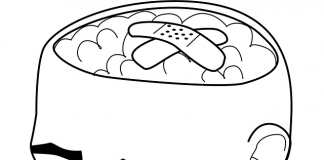Take a deep breath. Relax. Calm down. How many times do we say these things to ourselves, our partners, our friends? While the sentiment behind the statement is often full of caring and concern, the statement itself isn’t necessarily a helpful one. “Of course I take deep breaths!” “I’ll be able to relax once this task is done.” Let’s not even imagine the response to the loaded “calm down” statement.
It has become increasingly difficult to simply slow down in today’s world. Bragging rights abound at the office over who can multitask effectively, who can function on the least amount of sleep. Smartphones and the 9-5s that somehow drag into the evening hours make it all too easy to stay busy. We know on some level that to be constantly going isn’t a healthy state of being but it seems that we’ve lost the ability to do less – or even, gasp, to do nothing – on any regular basis. It’s become a mark of leisure, hoarded for those vacation days that American’s don’t use or that elusive weekend, but only after the housework is all done.
Many healthcare professionals agree that prioritizing leisure time can be instrumental in the overall battle of managing stress. There is also a widely recognized and growing body of research suggesting that relaxation activities and even the simple act of reflection and intentional gratitude can help reduce that all encompassing word ‘stress’. (1) We know the benefits are real so what prevents many of us from diving in and making time for doing nothing?
The ongoing stigma of doing nothing prevails and, in my opinion, detracts us from these practices of intentionally doing less. Fear of judgment from others, or even not knowing how to “simply be” are powerful deterrents and keep us stuck in the rat race of who can do more. My tips, not only for myself, but for my client base as well are to start by giving ourselves a healthy dose of non-judgment when we catch ourselves not completing all of those “shoulds” on our daily lists. This sounds a bit like: “I should have finished the laundry instead of reading that novel”. We could easily get stuck in that cycle of self-judgement, guilt, and anxiety, which leads us to the next task without much reflection. My alternative is to challenge that initial should with something like: “I could have done the laundry, instead I chose to read a novel. I feel relaxed and enjoyed that time with my book.”
You’ll probably notice that the laundry isn’t magically done just because we engaged in some self-care and leisure time. Doing less, honoring your needs for something non-task oriented, is unfortunately not a magic pill; hopefully though you’ll also notice that not having done the laundry isn’t the end of the world (and therefore neither is the time you spent relaxing with that book!). The goal here would be to continue this line of self-challenging, especially when your thoughts are related to the “shoulds” in life and see how you can slowly gain more space to accept and provide for your human needs of rest and relaxation.
One of my favorite sentiments on just being comes from the Buddha and essentially is this – when you eat, eat. When you sleep, sleep. And when you read your novel, read your novel. Being present with yourself regardless of tasks can be a great first step on the road of accepting and even celebrating your ability to slow down.
References:



















